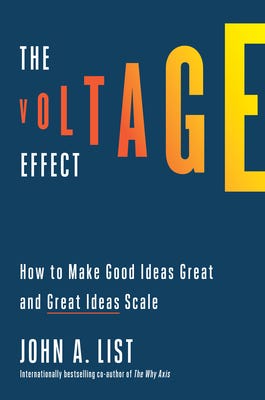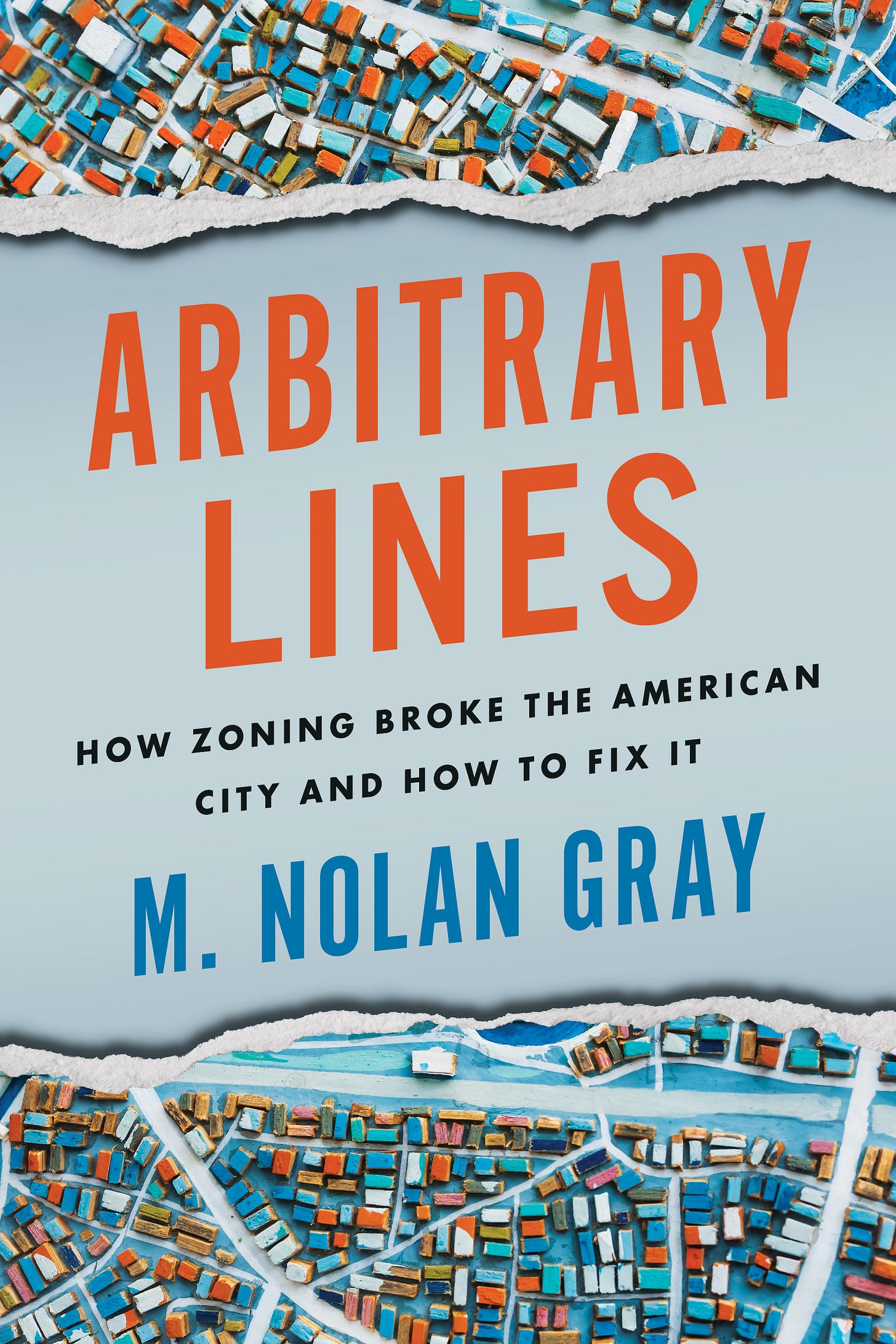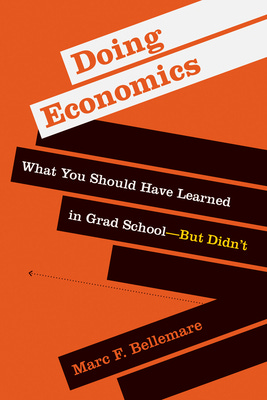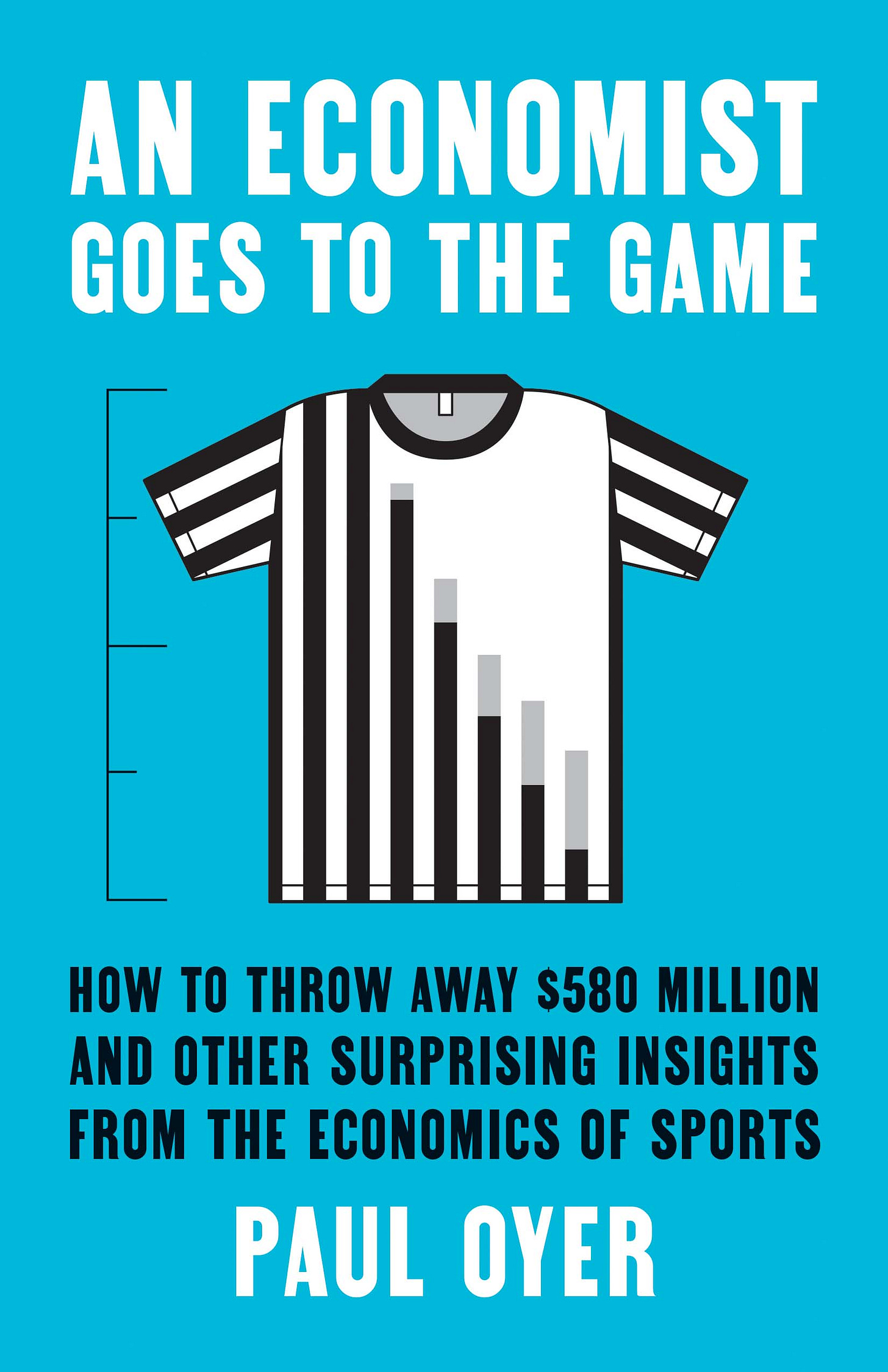My Favorite Economics Books From 2022
These are a few of my favorite economics books that were published over the past year.
I absolutely love reading, especially books on economics and economics-adjacent fields. I have a soft spot for history and geography, especially when they have some hidden economics concepts between their spines. I tend to read a heavy dose of nonfiction each year because each of those books gives me some sort of new insight or a new anecdote that I didn’t know before. I love that tingle in the back of your head after learning something new.
I wanted to share my favorite economics books that were published in 2022. I read a really wide range of genres each year and for the past 7 years, I've set a goal of reading 52 books annually. If you're interested in reading more, check out this post on how you can read more:
Here are five of my favorite economics and economics-adjacent books that were published this past year.
1) How to Teach Economics to Your Dog by Rebecca Campbell & Anthony McGowan
The authors work through the majority of concepts that are covered in a principles of economics course (both micro and macro), but the concepts are covered under the guise of walks with their dog, Monty. You’ll follow along as the author takes their dog to different places around London. Monty is quick to challenge some of the concepts and provides some common critiques about economics that you may also have.
The authors are based in London, so a lot of the examples reference things in the UK. Despite this, the authors do include a lot of references to US events as well. The book was a bit cheeky at first, but it moves quickly once you get settled into the narrative structure.
2) The Voltage Effect by John List
I purchased the book because I saw it promoted on Twitter and wanted to support the author’s work. I initially put off reading it because I didn’t think it was relevant to my life. Boy was I wrong! The book has a nice mix of business and economics examples and focuses largely on how some of today’s most prominent companies scaled from their small beginnings. The author also highlights some of the reasons companies have struggled to scale beyond their small success.
I ended up really enjoying this book because it gave me some ideas and a new mindset about how to scale what I’ve been doing professionally. I’m proud of this newsletter and the work I’ve done with economics education, but I constantly ask myself how I can get those resources out to others. This is one of those books that I’ll likely read again as I start to think about scaling up.
3) Arbitrary Lines by M. Nolan Gray
I love history books, particularly the history of policies, which have a lot of economic concepts embedded in them. The author provides a really thoughtful overview and history of zoning policy in the United States without getting into too much of the nitty gritty. When he does go a bit deeper, it’s often to show how convoluted zoning policy has gotten over the years.
I purchased the book because I (also) saw it promoted on Twitter. I ended up spending more time on Wikipedia than I did reading this book, but that’s one of the markers I have for a good nonfiction book. I don’t expect nonfiction books to cover every example and policy in minute detail, but to instead provide enough information that I go and search for more information on my own. There are a lot of good stories and examples in this one!
4) Doing Economics by Marc Bellemare
The author is another person I follow on Twitter and was so excited when his book was published earlier this year. He is also one of the few authors on the list that I’ve been fortunate enough to hear speak when he visited Virginia Tech earlier this year. Bellemare has written a guide for applied economists who are unaware of the “hidden curriculum” associated with becoming a researcher.
This one is targeted toward a much narrower audience than the other books on the list, but it has already provided dividends when it comes to framing my work and writing reviews. A lot of the soft skills around being a professor and a researcher aren’t covered in grad school, so the author has laid them all out in this book. If you’re in graduate school for applied economics (or a closely-related field), you need to pick up a copy of this book today.
5) An Economist Goes to the Game by Paul Oyer
As a sports economist, I was really excited about this book when it came out. It covers a lot of introductory-level economic concepts but frames those concepts in the context of sports. It’s a nice mix of real-life examples of some popular concepts, and many of the examples will be familiar to even a casual sports fan. If you aren’t, however, a big fan of sports then this one may not be a good book for you. One of the things I really liked about the book was how broad the examples were of sporting events around the world. Stanford put together a really nice press release when Oyer’s book came out, and you can even watch a summary on YouTube:












